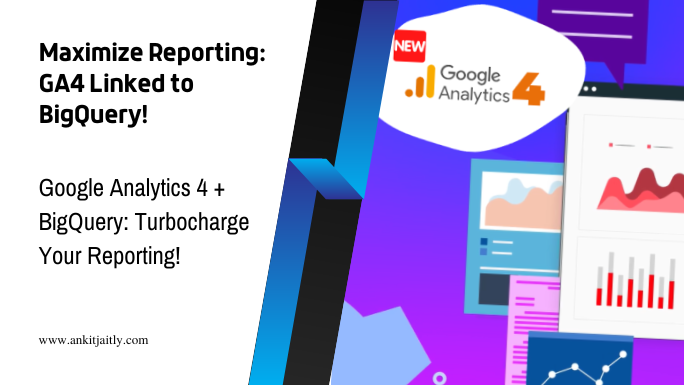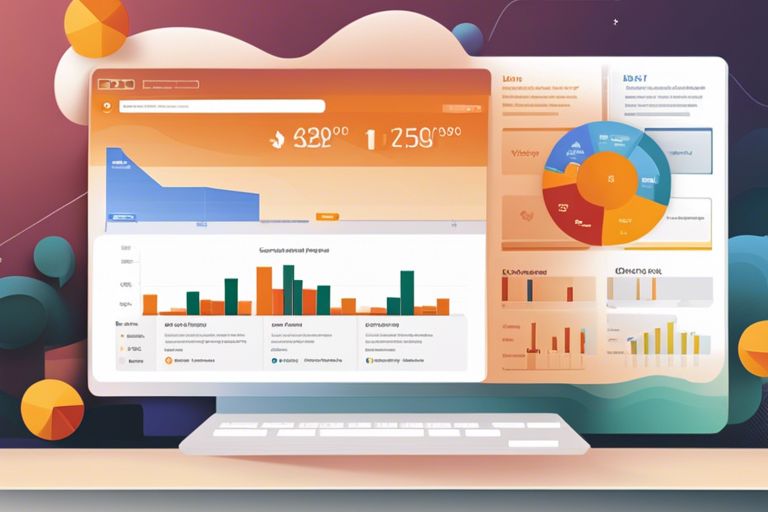Efficacious digital marketers and data analysts understand the importance of leveraging advanced tools for in-depth insights. One such powerful combination of tools is linking Google Analytics 4 to BigQuery for enhanced reporting. By establishing this connection, marketers and analysts can gain unparalleled access to raw, unsampled data from their website or app, allowing for deeper analysis and more comprehensive reporting. This integration offers a myriad of benefits, including the ability to analyze user behavior, create custom reports, and retrieve data in real-time for more accurate decision making. In this guide, we will explore the significant advantages of linking Google Analytics 4 to BigQuery and how it can revolutionize your data analysis and reporting processes.
Understanding the Benefits
Your Google Analytics 4 (GA4) data is valuable, and linking it to BigQuery can provide a multitude of benefits for your organization. By leveraging the power of BigQuery, you can achieve enhanced reporting capabilities, improved data analysis, and actionable insights that can drive growth and success. Let’s take a deeper look at the benefits of linking Google Analytics 4 to BigQuery.
Comprehensive Data Analysis
Any organization can benefit from a more comprehensive and in-depth analysis of their GA4 data. By linking GA4 to BigQuery, you can access and analyze raw, unsampled data, enabling you to perform advanced analytics and uncover valuable insights. This integration allows you to combine GA4 data with other datasets, perform complex queries, and gain a deeper understanding of user behavior and interactions.
// Example code for querying GA4 data in BigQuery
SELECT *
FROM `project_id.dataset_id.ga_sessions_20210101`
WHERE traffic_source.source = 'organic'
Real-Time Insights and Customization
The integration of GA4 with BigQuery provides the ability to gain real-time insights and customization options for your data. The raw, unsampled data stored in BigQuery enables you to analyze user behavior in real-time, customize your reporting, and create personalized dashboards for your various personas. This level of real-time insight and customization can lead to more informed decision-making and actionable outcomes for your team.
// Example code for real-time analysis of GA4 data in BigQuery
SELECT event_name, COUNT(*) as event_count
FROM `project_id.dataset_id.events_20210101`
GROUP BY event_name
The ability to access real-time data for behavior analysis, segmentation, and customized reporting is a game-changer for organizations.
Data Integration and Accessibility
Benefits await you as we consider data integration and accessibility. By linking Google Analytics 4 to BigQuery, you can integrate your GA4 data with other data sources, such as CRM, sales, or marketing data, for a 360-degree view of your business performance. This seamless integration allows multiple teams to access and analyze the combined data, breaking down silos and facilitating collaborative insights that can drive informed decision-making across the organization. In addition, the accessibility of raw, unsampled data in BigQuery empowers teams to explore and uncover insights to drive strategy and growth.
// Example code for integrating GA4 data with CRM data in BigQuery
SELECT ga.user_id, crm.customer_id, ga.session_id
FROM `project_id.dataset_id.ga_sessions_20210101` AS ga
LEFT JOIN `project_id.dataset_id.crm_data` AS crm
ON ga.user_id = crm.user_id
Integration with other data sources and the accessibility of raw data in BigQuery can enhance collaboration and drive data-driven decision-making across the organization.
Steps to Link Google Analytics 4 to BigQuery
While linking Google Analytics 4 to BigQuery for enhanced reporting is a powerful tool for data analysis and visualization, it involves a series of steps to set up the integration. The following guide outlines the necessary steps to seamlessly link Google Analytics 4 to BigQuery, allowing for powerful data insights and enhanced reporting.
Preparatory Considerations
Preparatory to linking Google Analytics 4 to BigQuery, ensure that you have the necessary access permissions for both Google Analytics and BigQuery. Additionally, ensure that all relevant data streams are properly connected and organized within the Google Analytics 4 interface. This includes setting up custom dimensions and metrics that may be required for advanced reporting within BigQuery.
# Sample code for preparing access permissions
gcloud projects add-iam-policy-binding your_project_id --member=user:[email protected] --role=roles/bigquery.admin
Step-by-Step Integration Process
Step-by-step integration process involves creating or selecting a BigQuery project to house the Google Analytics 4 data, establishing the link between Google Analytics 4 and BigQuery, and configuring specific data streams and dimensions for export. This process requires careful attention to detail to ensure that the integration is set up accurately and effectively.
# Sample code for linking Google Analytics 4 to BigQuery
gcloud alpha analytics admin properties create-bq-link your_property_id --bigquery-dataset your_dataset --location=US
It is important to note that the integration process may require the involvement of IT personnel or individuals with technical expertise to ensure that the linking process is seamless and properly executed. Furthermore, regular monitoring and maintenance of the integration is essential to ensure the accuracy and reliability of the data exports from Google Analytics 4 to BigQuery.
Best Practices and Optimization Tips
To get the most out of linking Google Analytics 4 to BigQuery for enhanced reporting, it’s important to follow best practices and optimization tips. Here are some recommendations to ensure smooth integration and maximize the benefits:
/* Sample code for setting up Google Analytics 4 and BigQuery integration */
gtag('config', 'GA_MEASUREMENT_ID', {
'integration': 'gtag',
'send_page_view': false
});
- Ensure proper data mapping and schema setup in BigQuery
- Use the GA 4 and BigQuery documentation for best practices
- Regularly check and optimize data processing and query performance
- Implement data sampling strategies to manage large datasets
- Utilize partitioned tables and clustering for efficient data storage and retrieval
Types of Reports Enhanced by Integration
By linking Google Analytics 4 to BigQuery, various types of reports can be enhanced through combined data analysis. This integration enables more comprehensive insights and reporting capabilities for multi-channel attribution, custom user segments, enhanced e-commerce analytics, and more.
/* Sample SQL query for multi-channel attribution report */
SELECT
trafficSource.source,
trafficSource.medium,
SUM(totals.transactions) AS totalTransactions
FROM
`project.dataset.ga_sessions_*`
GROUP BY
trafficSource.source,
trafficSource.medium
- Multi-channel attribution reports provide insights into user conversion paths
- Custom user segments allow for targeted analysis and personalized reporting
- Enhanced e-commerce analytics offer detailed transaction and revenue data
- Combined data insights provide a holistic view of user behavior and interactions
- Advanced reporting options enable cross-platform performance analysis
Tips for Maximizing the Use of Combined Data
Integration of Google Analytics 4 and BigQuery offers a wealth of opportunities for maximizing the use of combined data. By following these tips, businesses can extract valuable insights and drive strategic decision-making:
/* Sample query for analyzing user behavior across multiple touchpoints */
SELECT
user_pseudo_id,
event_name,
COUNT(*) AS eventCount
FROM
`project.dataset.events`
GROUP BY
user_pseudo_id,
event_name
- Assume that your business goals and KPIs guide the selection of data for analysis
- Utilize advanced machine learning models for predictive analysis and trend identification
- Implement customized data visualization and reporting tools for actionable insights
- Regularly review and refine data integration and reporting processes
- Assume that data security and privacy measures are adhered to at all times
What Are the Potential Benefits of Exporting Google Analytics 4 Data to BigQuery for Small Businesses?
By using the Google Analytics 4 export feature to BigQuery, small businesses can derive actionable insights from their data. This enables them to make informed decisions, optimize marketing strategies, and improve overall business performance. The seamless integration allows for efficient data analysis and deeper understanding of customer behavior.
Analyzing the Impact
Unlike traditional reporting methods, linking Google Analytics 4 to BigQuery allows for deeper analysis of your data. By leveraging the power of BigQuery, you can gain insights into user behavior, track the effectiveness of marketing campaigns, and understand the impact of website changes in real-time.
// Query to analyze user behavior
SELECT event_name, COUNT(event_name)
FROM `project_id.analytics_123456789.events_*`
WHERE event_timestamp > TIMESTAMP_SUB(CURRENT_TIMESTAMP(), INTERVAL 7 DAY)
GROUP BY event_name
ORDER BY COUNT(event_name) DESC
LIMIT 10
Factors Influencing Analysis Results
Analysis results obtained from Google Analytics 4 linked to BigQuery can be influenced by various factors such as data accuracy, data consistency, and data sampling. Ensure that your data collection methods are robust, and your data pipeline is well-tuned to minimize any discrepancies in the analysis results.
// Query to check data accuracy
SELECT COUNT(DISTINCT user_id)
FROM `project_id.analytics_123456789.events_*`
- Data accuracy: Ensure that the data collected is accurate and free from errors.
- Data consistency: Standardize the data collection process to maintain consistency across all data sources.
- Data sampling: Be aware of data sampling methods used in the analysis to avoid skewed results. Recognizing the influence of these factors is crucial in obtaining reliable analysis results.
Pros and Cons of Linking Google Analytics 4 with BigQuery
Analyzing the impact of linking Google Analytics 4 with BigQuery reveals both the advantages and disadvantages of this integration. On the positive side, you gain access to real-time data analysis, advanced segmentation, and custom report creation. However, it comes with the downside of potential data costs and complexity in setup and maintenance.
| Pros | Cons |
| Real-time data analysis | Potential data costs |
| Advanced segmentation | Complex setup and maintenance |
| Custom report creation |
Conclusion: The Benefits of Linking Google Analytics 4 to BigQuery for Enhanced Reporting
So, by linking Google Analytics 4 to BigQuery, businesses can gain access to more advanced reporting features and capabilities. This integration allows for better data analysis, customizable reporting, and the ability to create more complex and in-depth insights. With the power of BigQuery, businesses can delve deeper into their data, uncovering valuable insights and trends that can help drive strategic decision-making. The seamless connection between Google Analytics 4 and BigQuery opens up new opportunities for businesses to leverage their data and gain a competitive advantage in their respective industries. Overall, the benefits of linking Google Analytics 4 to BigQuery are undeniable, providing businesses with the tools they need to elevate their reporting and analytics efforts.


Leave a Reply